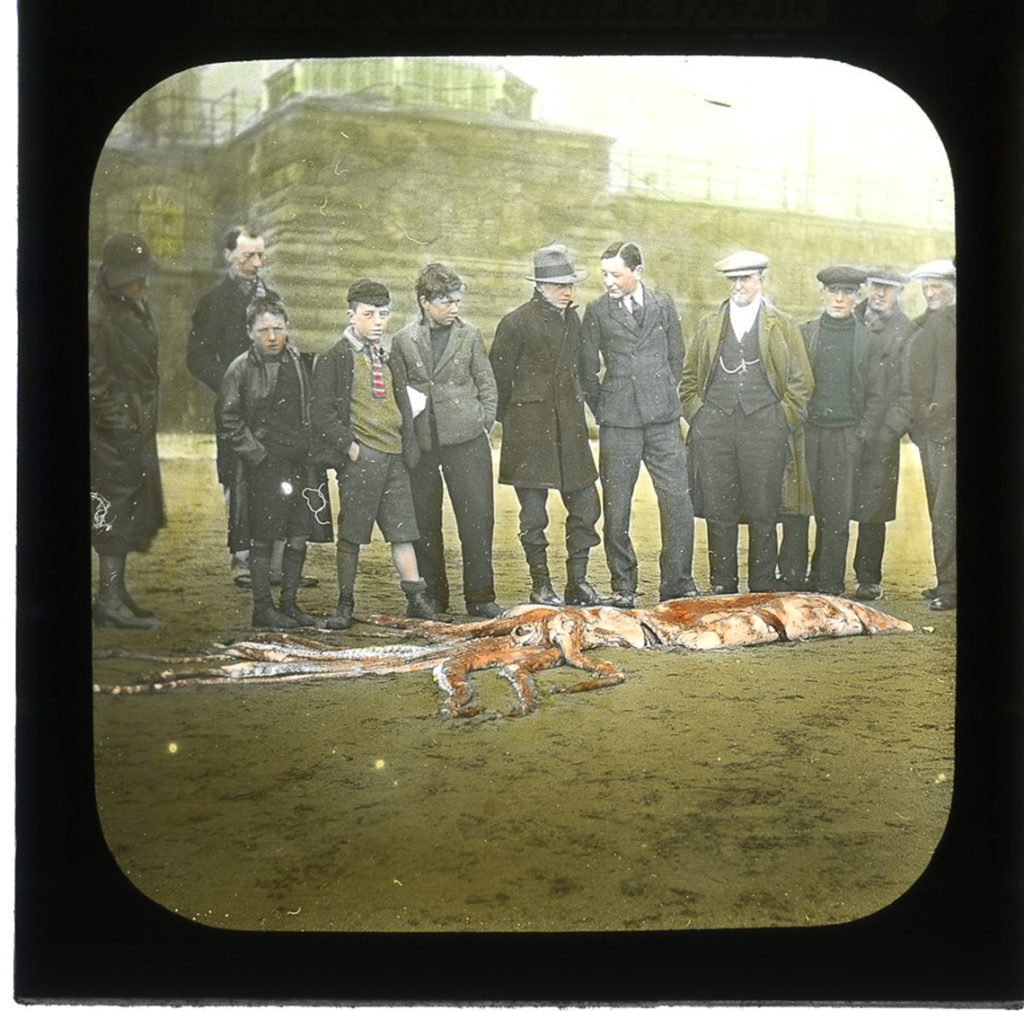
HISTORIC magic lantern slides from the Scarborough Collections are an online hit in these dark days.
As part of Scarborough Museums Trust’s response to the Coronavirus shutdown, collections manager Jim Middleton is posting regular images from the stock of slides and glass-plate negatives on Twitter, using the hashtag #lockdownlanternslides.
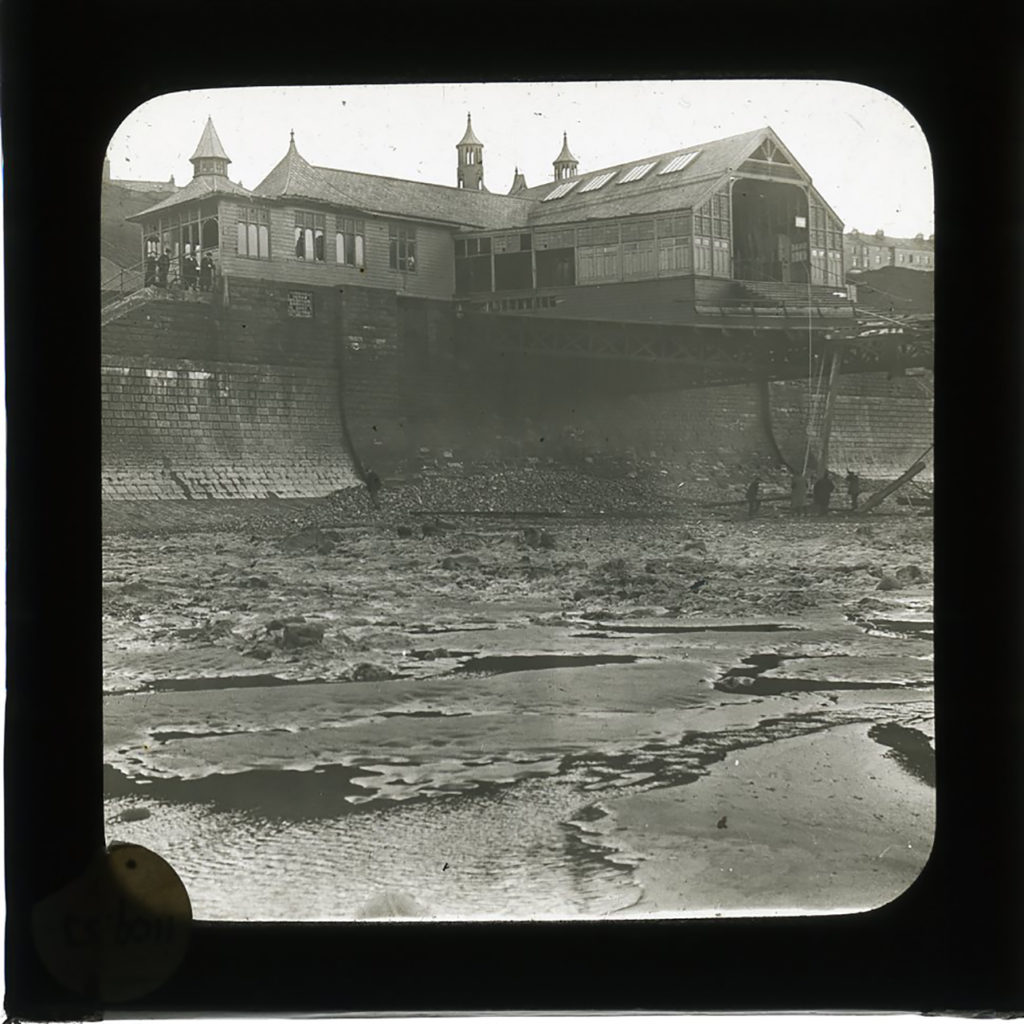
The response has been “remarkable”, he says: “We’re getting comments and queries from other museums, historians and the public nationwide. This includes an interaction the other day with the Natural History Museum in London, who contacted us during a series of posts themed around cephalopods, the family of marine animals that includes octopus and squid.”
Middleton had posted an image of a 5.3m-long giant squid that had been washed up on the North Bay beach on January 14 1933, pictured surrounded by curious Scarborough locals.
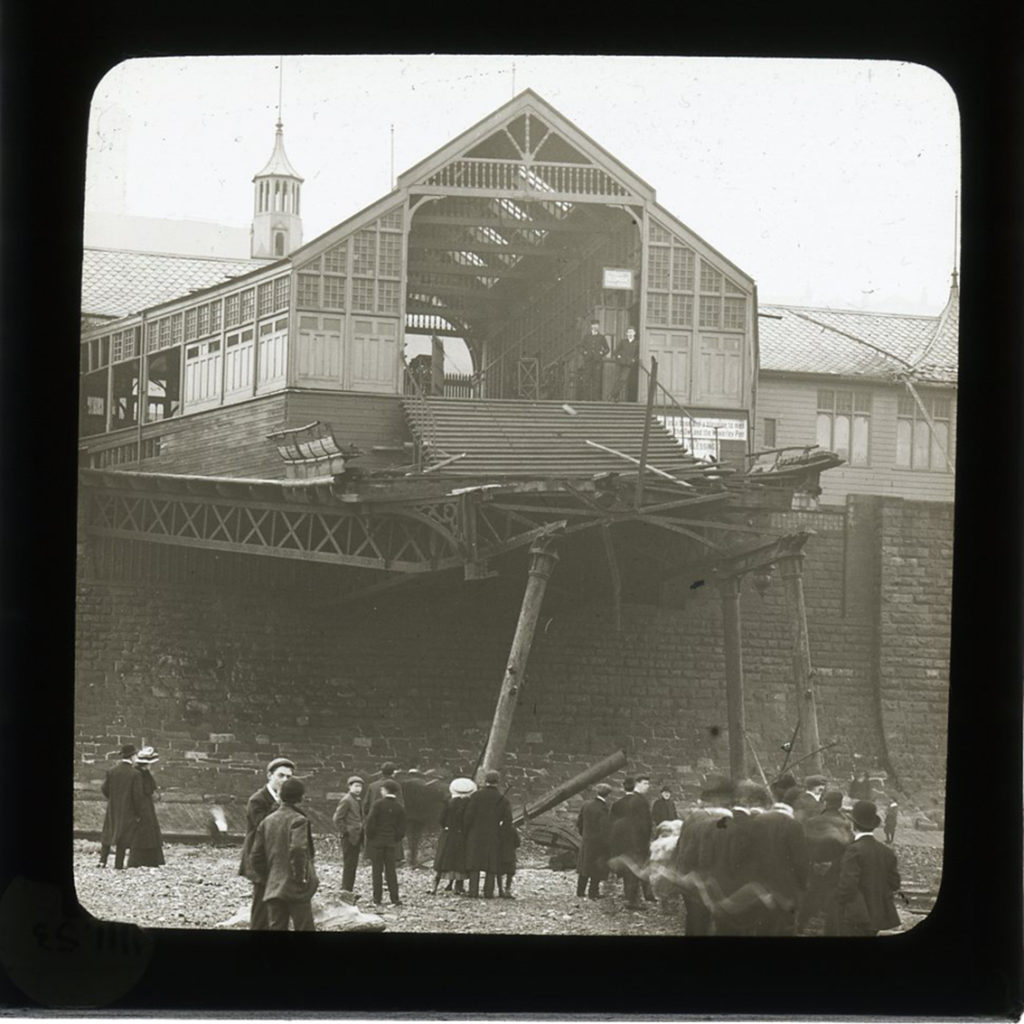
“We’d always known that they had the beak of the squid, but they got in touch to say they had the whole animal preserved in their archive,” says Middleton. “We’ll be hoping to get a better look at it when we can.”
Among other themes being explored are historic local buildings, some of them no longer in existence, such as the North Bay pleasure pier, destroyed in a storm in 1905, and vintage seaside scenes of children rock pooling and bathing-beauty contests.
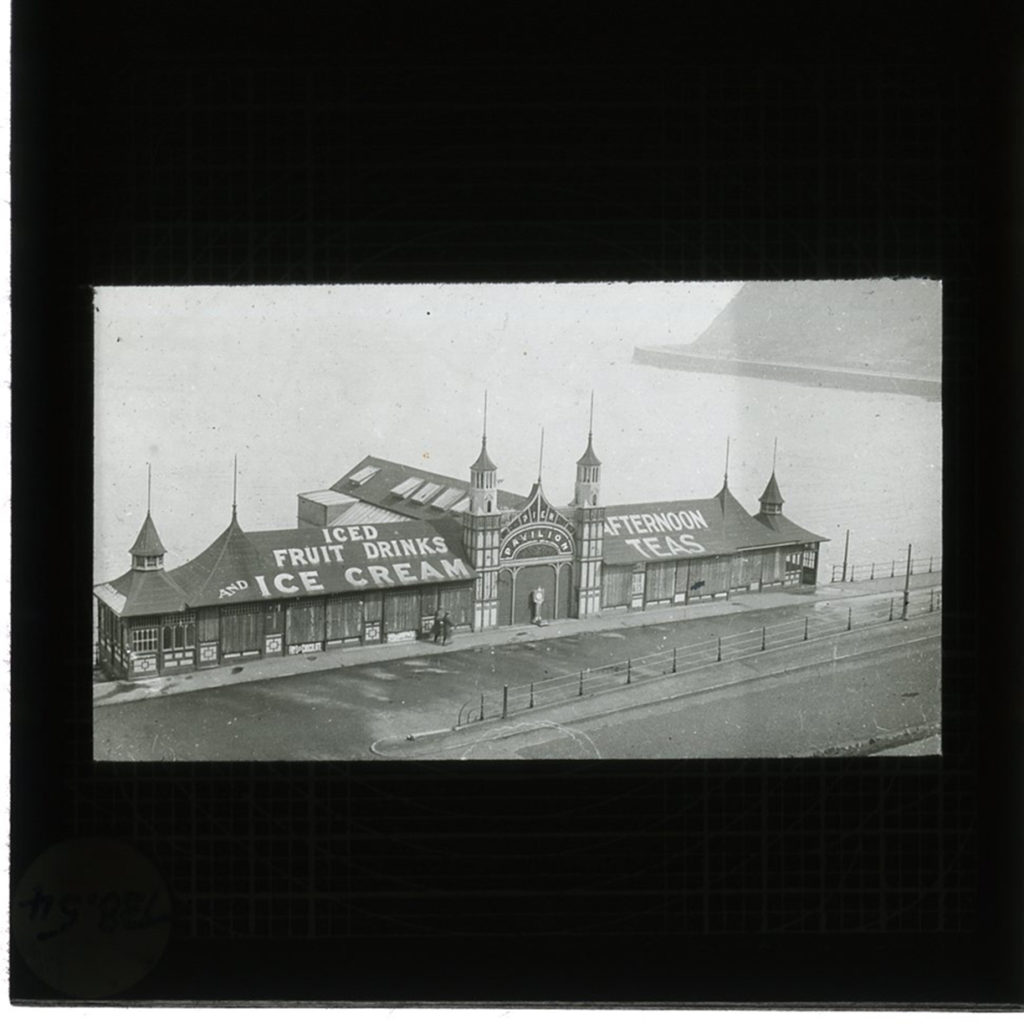
Magic lanterns were early image projectors that applied a light source to magnify and project images on glass and they were used for both education and entertainment, particularly during the 19th and early 20th centuries.
The Scarborough Collections – the name given to all the museum objects owned by the Borough of Scarborough – contains more than 7,000 slides and glass plates, in the care of Scarborough Museums Trust.
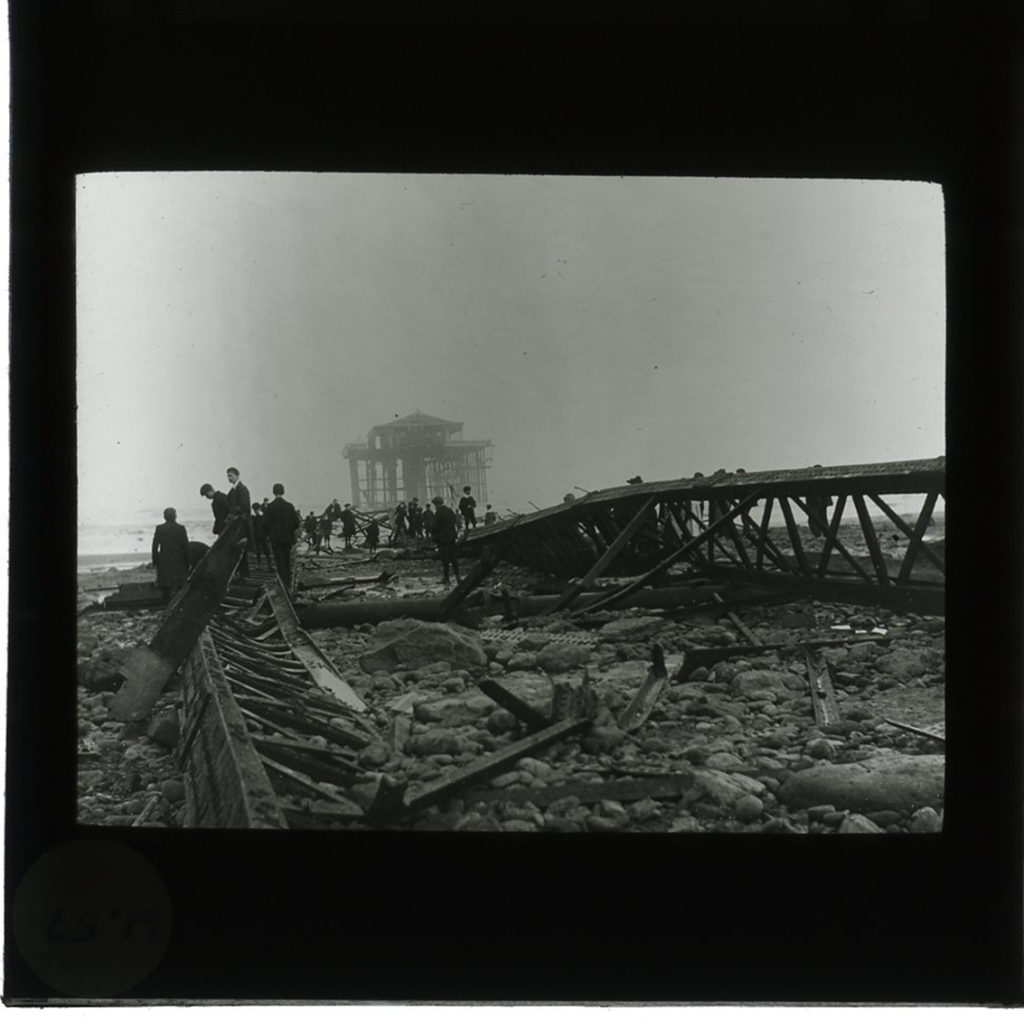
The images posted daily by Middleton can be seen by following @SMT_Collections on Twitter. To view existing posts, search #lockdownlanternslides.
The Rotunda Museum, Scarborough Art Gallery and Woodend, all run by Scarborugh Museums Trust, are closed until further notice.
